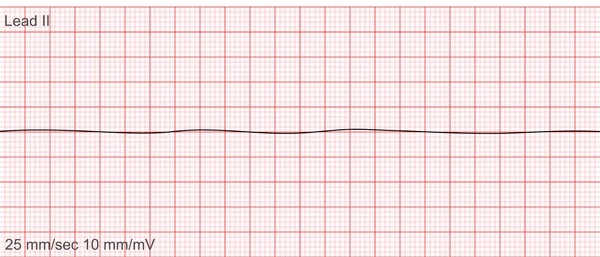For the wages of sin is death, but the gift of God is eternal life in Christ Jesus our Lord. Romans 6:23
Rejoice! It’s Christmas!
My favorite time of year. I have many vivid memories of colored lights, holiday music, sweet foods, and the warm aromas that filled my mother’s kitchen every Christmas season. For me, it’s always been a magical time, made so most of all, I believe, by the opportunity just to be home with my family. But I can remember one Christmas Eve long ago when I did not feel like rejoicing. I was a paramedic on B-Shift, and it was our turn to work on the 24th.
A Tough Call on Christmas Eve
My good friend, Warren, and I were riding on Medic 7, and by 8:00 PM that night we were already exhausted. We had run one call after another, including a severe car crash that left two patients dead and both of us feeling exhausted. So, when the radio crackled, and the dispatcher began to announce another call, I hung my head in frustration. “Man,” I murmured. “Not another one.”
“Medic-seven and engine-three—” The dispatcher’s voice came across loud and clear but with a cold, matter-of-fact tone indicative of the automatic defense mechanism she had developed over the years. I thought she sounded a little weary, too, as if she would rather be at home with her family. After all, it was Christmas Eve. I murmured a quick prayer and listened to the dispatch: “Cardiac arrest. Family on scene states CPR in progress. Respond code-three.”
Cardiac arrest. Someone was dying. My stomach tightened.
I glanced at my watch—8:45 PM—and then jumped up and followed Warren into the ambulance bay. I grabbed my stethoscope and hung it around my neck, pulled on my insulated field jacket, and climbed into the unit. Once buckled in, I grabbed a pair of latex gloves and called our unit en route. “Medic-seven,” I said, taking a deep breath to counter the adrenalin rushing to my brain. “En route from Lincoln base.”
“Medic-seven,” the dispatcher responded. “En route from Lincoln.”
Warren started the truck and turned on the flashing lights. The truck bay lit up like a disco. I pushed a button to raise the huge bay door. Warren put the truck in gear and pulled out into the night. He turned a switch on the dash console and the siren began to wail. A light rain was falling. The wipers streaked noisily across the windshield.
“What a bummer,” I murmured. “A code on Christmas Eve.”
I glanced at Warren, but he did not respond. I could tell by the hard lines on his face that he was feeling the same.
I decided to put my mind to use by reviewing the cardiac arrest protocols: CPR, airway, IV, and epinephrine. Maybe an anti-arrhythmic med or two, depending on the rhythm. I paused and thought about that. I hoped the patient’s heart had a rhythm. We had already witnessed two deaths that day, so the last thing I wanted was to see another.
I pulled out of my trance and pulled on my defense mechanism: a wall of stoicism I had built over the years to help me deal with the pain. Other peoples’ pain, that’s true, but the suffering of others can have a profound effect on one’s soul. It certainly had on mine. I knew it would catch up with me in time, but tonight I would keep it in check.
“Please, Lord,” I prayed. “Help us to do this right.”
A Family Member is Taken
We raced up Spruce Street and turned left on Maple. Up ahead I could see the flashing red and white lights of Engine 3. Warren pulled in behind it and stopped the ambulance. I called on-scene and then hopped out and grabbed the cardiac monitor and airway box. Warren grabbed the rest of the equipment and followed me inside the house.
“Hello!” I shouted, stopping in the foyer. “E-M-S!”
“Back here,” a muffled voice responded. Just then a frightened-looking woman came around the corner at the other end of a hallway and waved for us to come. “This way,” she said. “He’s back here.”

I wondered who he was. Her husband? Her father? I followed her into a den where a small group of people huddled together beside a Christmas tree, clutching one another and crying. The firefighters from Engine 3 were already hard at work on an elderly-looking man with no apparent sign of life. A firefighter I knew as Larry performed compressions on the victim’s bare chest. My good friend, John, and a third firefighter I didn’t know were doing their best to provide ventilatory support with the football-shaped BVM. Behind the clear plastic mask, the victim’s face appeared droopy and drained of color. His arms and hands lay limp by his side. His body jerked slightly with each compression.
“Hey, John,” I said, kneeling and pushing aside a half-opened Christmas present. “What do we have?”
John glanced up at me and shook his head. “Apneic and pulseless upon arrival. They were trying to do CPR. Said he collapsed while unwrapping a Christmas present.”
I placed two fingers on the man’s neck and felt a pulsing sensation. “Good strong pulse. Okay, stop compressions for a sec.”
Larry paused and leaned back. I felt the pulse disappear. That could only mean one thing—we had a cardiac arrest.
A Perfect Code
Larry resumed compressions. I reached for the cardiac monitor. Warren opened the med box and began pulling out supplies. A moment later we had an IV in place and the monitor up and running. “Hold up,” I said, stopping Larry. I glanced at the monitor and watched a flat green line trace uncaringly across the screen. I had hoped for a blip, a squiggle, or at least some sign of electrical activity in the man’s heart, but there was none. I checked another lead just to be sure, but to no avail. “Asystole,” I announced. “Let’s get started.”
Warren pushed an ampule of epinephrine into the IV line and then reached back into the med box. I took over the airway and started delegating roles. And that’s how the code went. We all took turns ventilating and performing compressions. After inserting an endotracheal tube to secure his airway, we pushed a lot of drugs. We worked as a team in a well-organized attempt to save a human life, to get something in his heart going, and it could not have gone any better. I felt a deep sense of pride to be working with such a great group of people. I mean, we had all performed well, doing what paramedics do, but deep inside I knew our attempt was futile. Asystole remained on the monitor. Our patient was dead.
“Warren,” I said, glancing at the family and then leaning close to my partner. “I think we should call it.”
“Yeah,” he whispered. “I agree.”
“No!” I heard someone shout. “Please! Don’t stop!”
“C’mon, Daddy,” someone cried. “You can do it!”
Hope, Even in Death
I felt dumbstruck. I had never seen such a response from an onlooking family. They stood behind me holding onto one another for support, cheering loudly for their father, grandfather, and husband as if for a kicker attempting a field goal. Their cries of encouragement and the hope I saw on their faces just about broke my heart, but also, it warmed my soul. What was happening? How could they have such hope?
It made me want to keep trying, but what else could we do? We had run a perfect code in the middle of their living room—a beautiful home decorated with a Christmas tree and lights and smelling of pine needles and cider—yet, still, our patient lay motionless, with that glazed appearance of hopelessness rolling over his eyes.
“It’s Christmas, Granddad,” one of the children said. “You can’t leave us now.”
“Honey,” his wife cried. “It’s okay. We’ll be together again soon.”
Together again soon? I felt my eyes well up. I shook my head and leaned close to Warren. “Man, what do we do?”
Warren shook his head, and whispered, “Pat, we need to call it. He’s gone.”
I knew Warren was right. Our protocols were specific, and we followed them to the letter. I placed a hand on his shoulder and asked him to call the ER for orders. He nodded, stepped aside, and raised the radio to his mouth. I pushed another Epi and made a few final checks. Finally, Warren glanced at me, nodded, and lowered his radio. “Doc at Duke agrees. Go ahead and stop.”
The firefighters stopped compressions. I placed my fingertips against the patient’s neck one last time and stared at the cardiac monitor, but there was no sign of life. That same thin green line made its lonely trek across the screen, indicating a heart completely devoid of activity.
I glanced at my watch to mark the time—9:34 PM—and then turned to the family. “I’m so sorry,” I said. “We did all we could do.”

They knew that. Everyone in the room knew it. But still, it was hard for me to stop. I wanted so badly to save this guy. I was pulling for him; I was pulling for his whole family. But I felt a strange peace that helped me to relax because there was just something different in that living room. A real sense of hope. But how, you might wonder? How could a family feel hope in such a sad situation as this?
Well, this year as we enter the Christmas season, I want you to remember that there is hope, even in death, real hope. And that’s what Christmas is all about. You see, if we were all perfect, we wouldn’t need saving. Death would come and Heaven would follow. But the Bible says we have all sinned, and with sin comes darkness and death, not Heaven. But be of good cheer! Two thousand years ago God gave us the greatest gift of all: Eternal life through His son Jesus Christ.
“For unto us a child is born, unto us a son is given. And the government shall be upon his shoulder: and his name shall be called Wonderful, Counsellor, The mighty God, The everlasting Father, The Prince of Peace.” (Isaiah 9:6)
Rejoice! It’s Christmas!
I will never forget that night. I witnessed death, again, it’s true, but instead of the sorrow I typically feel at those moments, I felt a strange peace. It was because of their faces, I think. The hope I heard in their cries. It reminded me that Jesus was born on that first Christmas Day. Born that we might live, and that even in death we might experience everlasting life. Yes, I believe there is hope. Hope in life. Hope in death. Hope in Jesus.
Rejoice, everyone! It’s Christmas!





Powerful. Thank you, Pat.
Great piece, Pat.